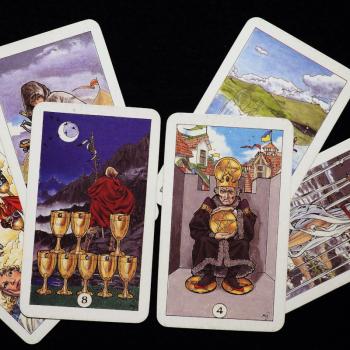Colin Powell, four-star general, Chairman of the Joint Chiefs of Staff, and the first Black Secretary of State of the United States, died on Monday from complications of Covid-19. He was 84.
President Biden and former Presidents Obama, Clinton, Bush, and Carter issued statements praising his service to his country. Donald Trump issued a statement calling him a RINO and criticizing the media.
Should we speak no ill of the dead? What are our obligations to the grieving? What are our obligations to the truth?
Powell never inspired passion in people the way some did. I’ve seen a few comments on his death in my social media feed, but not a lot. Like the current and most former Presidents, most praised him for his service and held him up as an example of the kind of decent, country-first party-second Republicans we don’t see much of anymore in this era of Trump and McConnell.
Others called him a war criminal and said he should have died in jail.
Like so many people – famous and obscure, powerful and ordinary – Colin Powell leaves a complicated legacy. We do ourselves and our society no favors if we oversimplify his life. We also do ourselves no favors if we ignore his serious failings.

A brief biography
Colin Powell was born April 5, 1937 in New York City. His parents were Jamaican immigrants. He graduated from City College of New York and was commissioned as second lieutenant in the Army based on his participation in ROTC. He served in Vietnam and rose steadily through the ranks, becoming a Brigadier General after 21 years of service and a four-star general after 31 years.
He became Chairman of the Joint Chiefs of Staff in 1989. He was the youngest person to hold that position, the first Black person, and the first person to be commissioned through ROTC (rather than through one of the service academies). He was Chairman during the first Gulf War in 1991, which is where most of America came to know him.
Powell was mentioned as a Presidential candidate in 1992, 1996, and 2000, but he declined to run each time. He served as Secretary of State under George W. Bush from 2001 to 2005, and was part of the team that decided to invade Afghanistan and Iraq.
He remained a public figure after leaving government. He supported Hillary Clinton for President in 2016, saying “because I think she’s qualified, and the other gentleman is not qualified.” He supported Joe Biden in 2020, and left the Republican party after the January 6 insurrection.
The Presidency that might have been
There was talk of Colin Powell running for President in 1992, but most people expected George H.W. Bush to win re-election – he didn’t. There was talk of Powell running in 1996, but most people expected Bill Clinton to win re-election – he did. There was serious talk of him running in 2000, and he was my preferred candidate. I had voted for Clinton twice, but I didn’t trust Al Gore as President.
Powell never spoke candidly about his refusal to run. Those who know him generally pointed to two issues. First, he didn’t want to have to campaign to win the office – he was OK with being President, but he didn’t want to have to go through the ordeal of running for President. And second, his wife strongly discouraged it out of fear that a serious Black candidate for President would be assassinated.
I can’t blame him for either of those. But if he had run in 2000, it’s highly likely he would have won – and not by a hanging chad in Florida. There would have been no Bush v. Gore and the horrible legal precedent that set.
More importantly, he would have been President after the 9-11 terrorist attacks. Dick Cheney would not have been Vice President and Donald Rumsfeld would not have been Secretary of Defense. Powell would have gone after Osama bin Laden and might have invaded Afghanistan, though that’s far from certain. He never liked his nickname of “the reluctant warrior” but that’s what he was.
Mainly, we would have never invaded Iraq, in a war that lasted eight years, took over a hundred thousand lives, and essentially destroyed a country.
Beyond that, we would have had eight years of competent leadership instead of George W. Bush’s well-meaning incompetence and cabinet full of genuinely bad people.
I can’t blame Colin Powell for not running for President. But I wish he had.
Giving credibility to lies
I was happy when George W. Bush nominated Colin Powell to be Secretary of State. I wanted his deliberate, reasoned approach and especially his first-hand experience with the human costs of war in an administration full of chickenhawks.
The justification for the invasion of Iraq in 2003 was based on claims that Saddam Hussein was stockpiling weapons of mass destruction – chemical and biological weapons. Evidence to support those claims were not readily apparent – the excuse was that the intelligence was classified.
I was relieved when I heard that Colin Powell would be presenting the case at the United Nations Security Council in February 2003. I thought that if Powell was convinced Saddam had WMD, the evidence must be credible.
I remember watching his presentation and walking away thinking “that’s it?” The case was weak. History has shown it was even weaker – much of it was based on false intelligence.
Would we have avoided the Iraq war if Powell had refused to endorse it? I tend to think not – Bush wanted revenge on Saddam Hussein and he was going to get it, one way or another.
But I cannot forgive Colin Powell for lending his credibility to a war that never should have happened.
A complicated legacy
Colin Powell leaves a complicated legacy.
A lifetime of service. Effective leadership during the first Gulf War. A moderating voice in the Republican Party.
And also, a key accomplice in starting a needless war under false pretenses.
Last Sunday I talked about how we relate to the dead who did bad things in life. But that was in the context of ancestor veneration. I know of no one who has or is considering putting a picture of Colin Powell on their ancestors shrine. None of us have a pressing need to judge him, to declare him good or bad, worthy or unworthy.
But his legacy stands as a warning to us all.
It’s unlikely that anyone who reads this post will ever have the kind of power Colin Powell possessed. None of us will ever be responsible for as many lives. But all of us have some power, and all of us are responsible for some lives, even if only our own and those we come in direct contact with.
Even those of us who are good, compassionate, ethical people can cause great harm when we let bad people influence our decision making. When we defer to authority rather than doing what we know is right, we enable the abuse of that authority.
A note to commenters
I am not interested in debating whether Colin Powell was a good person or a bad person. I find such black and white declarations to be unhelpful, not to mention rather presumptuous.
I am interested in telling the truth – the whole truth – about Powell, his life, his accomplishments, and his failings.
And I’m very interested in what we can learn from his life – his whole life.

















